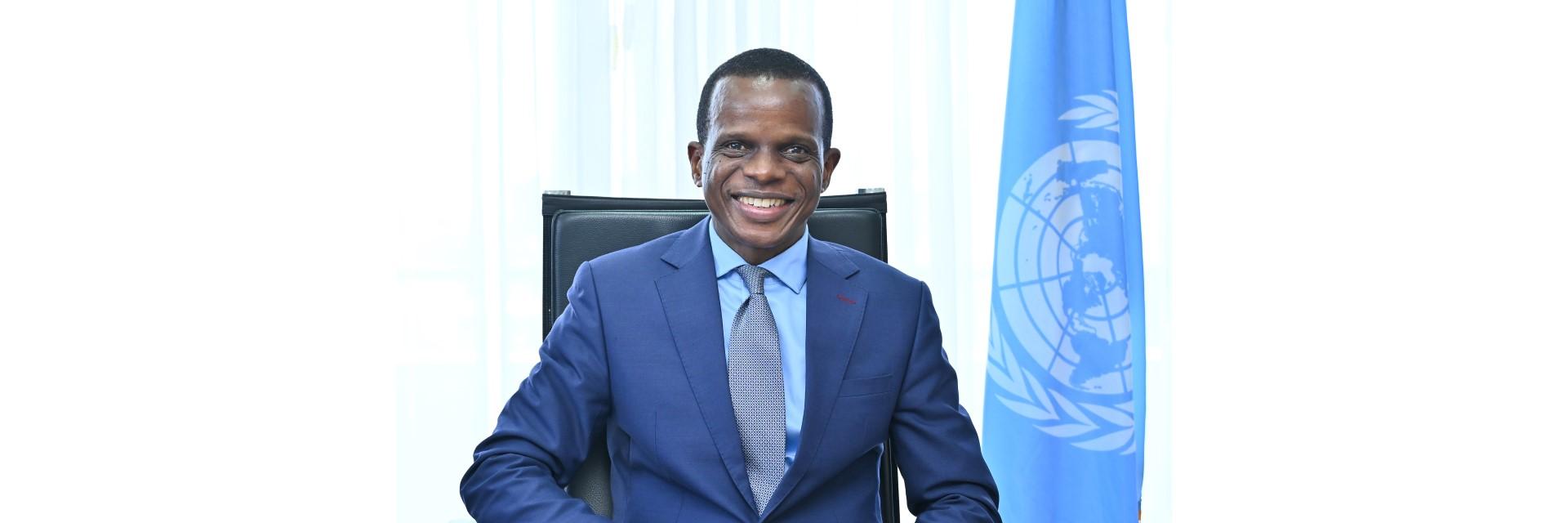Luanda, Angola, 17 August 2023 (ECA) - Africa should boost investment in human and financial capital to accelerate its sustainable industrialization and economic growth, Antonio Pedro, acting Executive Secretary of the Economic Commission for Africa said at the 43rd Southern African Development Community (SADC) Ordinary Summit of the Heads of State and Government in Luanda, Angola.
The 43rd Session which opened this week had the theme, Human and Financial Capital: The Key Drivers for Sustainable Industrialisation in the SADC Region.
Noting that human and financial capital were key drivers for sustainable industrialization, Mr. Pedro said much of Africa was off track to meeting the Sustainable Development Goals (SDGs) despite the region having endowments to rescue the SDGs and achieve Agenda 2063.
African countries should align their education systems with market and societal needs, Mr. Pedro urged. Equally, he said governments must invest in science, technology, and innovation to move away from the resource extractivism model that characterizes most of Africa’s mineral-rich countries and escalate value chains to avoid the middle-income trap.
The impact of the global shocks of conflict, climate, food, and energy crises as well as heightened tensions call for a strong African position within the global geopolitical economy, he said.
“For countries in the SADC region, the Russian/Ukraine conflict laid bare the fragility of the diversification strategies that do not address the structural issues compounding our growth model and the germane issues of poverty and inequality, said Mr. Pedro, lamenting that, commodity dependence has left many African economies at the mercy of global commodity price fluctuations, boom and bust cycles, leading to macroeconomic instability.
Calling for African countries to “break this vicious cycle” of commodity dependence, Mr. Pedro highlighted trade diversification as the solution to reducing the region’s vulnerability to global market turbulence and geopolitics.
The SADC region needs a fit-for-purpose industrialisation and economic diversification pathway to rescue the SDGs and achieve Agenda 2063, the acting Executive Secretary emphasized, saying:
“Business as usual will not deliver the SDGs and Agenda 2063 nor the future we want. We need a paradigm shift in our approach to accelerate the pace of industrialisation, achieve an impactful structural transformation, and meet our goals.”
Multi-sectoral approaches boost industrialization
Mr. Pedro challenged African leaders to establish an ecosystem for transformational change and leadership that brings together the government, the private sector, and other stakeholders in quality dialogues and co-creation of home-grown solutions.
“The time we devote to creating an enabling environment for Foreign Direct Investment should equally be spared into creating an adequate environment for domestic investors, big and small, because the emergence of a strong and competitive small and medium-sized enterprise sector will create the jobs we need for the youth, “ said Mr. Pedro, calling for industrial policies to be at the center of development policies.
In addition, Mr. Pedro said African countries must move beyond aid and broaden finance to enhance productive capabilities by mobilizing more domestic resources through pension funds which are attracted to bankable projects.
“Greening industrialisation is possible in SADC and it would be a very smart course of action because soon it will be increasingly difficult for us to export our value-added goods to jurisdictions that are introducing carbon borders,” said Mr. Pedro.
Noting that carbon credit markets can support industrialisation in Africa, Mr. Pedro said the Democratic Republic of Congo could lead the region’s efforts in monetizing the ecological services of natural capital to finance structural projects.
At US$120 a ton of CO2 sequestrated, Africa can generate US$82 billion a year, more than what the continent receives from Overseas Development Assistance. In addition, the development of the DRC-Zambia transboundary battery and electric value chain would benefit the SADC region to produce batteries locally and accelerate the deployment of solar and wind energy across Africa.
While in Angola, Mr. Pedro met with Angolan Minister of Industry and commerce, Rui Miguêns de Oliveira and discussed the need for the country to diversify its economy by not only moving up the value chain but expanding into other sectors such as agriculture and agribusiness.
Mr. Pedro underscored the importance of mobilizing financial resources from diverse sources, including establishing a special purpose vehicle to enable Angola to tap dormant pension funds for development projects as well as developing Angola’s carbon credit market.
Noting that the strengthening the national statistics system was critical for Angola to mainstream natural capital in its national accounting, Mr.Pedro said such accounting will ensure that the country’s wealth is adequately measured and could improve its ranking beyond the GDP positioning.
Issued by:
Communications Section
Economic Commission for Africa
PO Box 3001
Addis Ababa
Ethiopia
Tel: +251 11 551 5826
E-mail: eca-info@un.org

